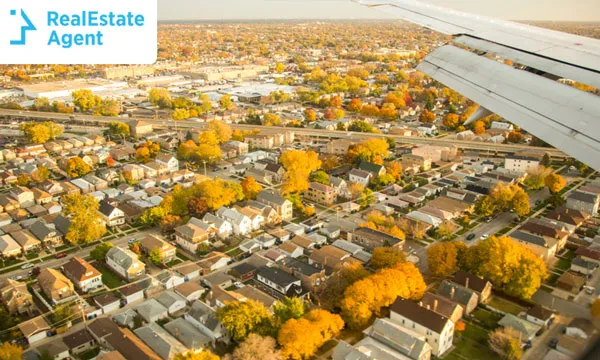
Ever thought about living near an airport? It's not everyone's cup of tea, but it might be the right ticket for many. There's much to unpack when debating whether the runway is a dream location or a potential nightmare.
Let's explore the pros and cons of calling an airport-adjacent neighborhood home. We'll discuss topical questions like "Does living near an airport cause health issues?". Will flight paths disturb your sleep patterns? Can homes near an airport be lucrative real estate investments due to rental income?
If you've been following our content on RealEstateAgent.com, you've probably noticed how we love to write about strange and/or unusual real estate scenarios. We've already written about living near a highway and considered whether living near a cemetery affects the value of your home. We even asked whether you would live in a haunted house if the price were right.
|
The pros |
The cons |
|
|
Living Near an Airport: Fascination vs. Resentment?
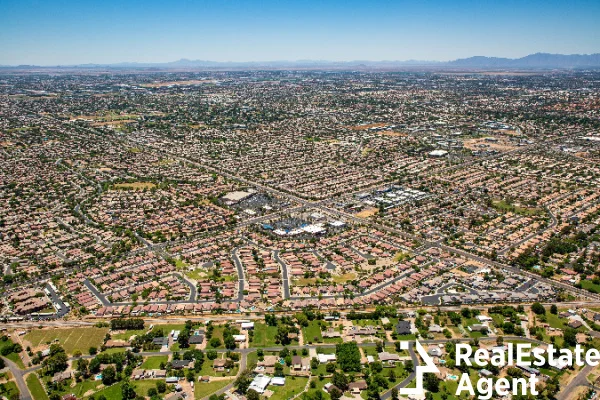 With population growth and inner-city developments all over the country, the scenario we're exploring today shouldn't come as much of a surprise. Living close to an airport is becoming increasingly common, and you may find yourself in this situation at one point or another. America is ever-increasingly reliant on air travel, and the propagation of airports is just one of the many side effects of this phenomenon.
With population growth and inner-city developments all over the country, the scenario we're exploring today shouldn't come as much of a surprise. Living close to an airport is becoming increasingly common, and you may find yourself in this situation at one point or another. America is ever-increasingly reliant on air travel, and the propagation of airports is just one of the many side effects of this phenomenon.
Did you know there were about 19,622 airports in America (as of 2023), including private and public airports and private runways? The most renowned airports in the States are:
- Hartsfield-Jackson Atlanta International Airport (ATL) - Atlanta, Georgia
- John F. Kennedy International Airport (JFK) - New York City, New York
- O'Hare International Airport (ORD) - Chicago, Illinois
- Los Angeles International Airport (LAX) - Los Angeles, California
- Denver International Airport (DEN) - Denver, Colorado
- Dallas/Fort Worth International Airport (DFW) - Dallas-Fort Worth, Texas
Living near a small airport poses many of the same risks and nuisances you'll face when living near a larger airport. These factors might be less pressing, but you will still feel them. The main thing about living close to an airport is this: you will feel the good and the bad no matter how hard you try to avoid it.
Advantages of living close to an airport

Living near an airport has its fair share of benefits, and there are certainly plenty of drawbacks. Still, it's fair to say that living near an airfield is a pretty sweet deal. In this section of today's article, we'll go over the most relevant factors so you know what to expect if you want to buy a home near the airport.
Proximity
This one may seem obvious, but it's a compelling advantage nonetheless. On the one hand, airports are often located some distance from urban centers. For this reason, friends from out of town will rarely ask to stay at your place because they'd rather be within walking distance of tourist attractions, such as the Big Apple (JFK Airport is about 15 miles from Manhattan). On the other hand, there used to be a time when living near a runway was widely seen as a bad thing, but with the age of fast connectivity, living close to an airport is becoming a good thing.
Living near where flights are always ready to whisk you away means you can dodge the pre-travel hustle and bustle. Missed alarms or last-minute packing? No sweat when the airport is just a hop, skip, and a jump away.
Benefit from Outstanding (and Cheap) Connectivity!
In our fast-paced world, we can't stress enough the significance of connectivity. We already mentioned how being close to an airport makes travel more convenient. You can easily catch flights without enduring long commutes to the airport. Secondly, it can provide you with multiple transportation options. This can include easy access to rental cars, public transportation, or ridesharing services. You can also save a lot of money by reducing or eliminating taxi fares. Thirdly, airports are often surrounded by amenities such as hotels, restaurants, and shopping centers. Living near an airport can give you access to these facilities.
Fourth, these fine establishments are hubs of global connectivity. Thus, you can travel internationally or connect to various domestic destinations effortlessly. Plus, you'll benefit from access to first-class jobs.
They’re Hubs of Employment.
 A recent MIT study shows that half of Fortune 500 company headquarters are within 10 miles of a big airport. Hence, chances are, you also live in an area with good jobs close to home. On the other hand, airports offer many jobs, from the high-flying careers of pilots and air stewards to essential ground staff and retail roles. Thus, calling the vicinity of an airport "home" opens a runway of career opportunities.
A recent MIT study shows that half of Fortune 500 company headquarters are within 10 miles of a big airport. Hence, chances are, you also live in an area with good jobs close to home. On the other hand, airports offer many jobs, from the high-flying careers of pilots and air stewards to essential ground staff and retail roles. Thus, calling the vicinity of an airport "home" opens a runway of career opportunities.
In fact, some real estate developers believe airports will become the next boomtowns, which leads us to the next good thing about living near an airport: the cost of living.
It’s more affordable.
All across America, communities still complain about flight paths near their homes to local authorities (see later the zoning laws and regulations in effect!) Therefore, you can still get fantastic square footage for a better price. You might find a sweet deal on a house with a pool and a massive backyard at a much lower cost than you'd expect to pay.
Undeniably, some may be put off by the incessant noise and fumes that residents of a home near the airport are forced to deal with. Nonetheless, the affordability that results from these factors is a compelling reason to buy such a home. For households with limited incomes and savings, the ability to buy a home at a seriously discounted price may come as a godsend.
Editor's Note. We must highlight that property values near airports have been rising lately. Investors and buyers have reconsidered their stance on purchasing homes near airfields due to the enhanced convenience. Local real estate agents can offer a more detailed presentation on such properties if this prospect intrigues you.
Emergency situations
Airports are a critical logistical factor in any city. For this reason, they play a crucial role in emergency situations and worst-case scenarios caused by natural disasters and terrorist attacks. Residing near an airport will offer you a quick exit and benefit from the airport's logistical importance whenever there's a city-wide power outage, for instance. The region near the airport will be the last to experience a blackout and the first to recover from one.
Airports can serve as operational bases for emergency response teams, including medical air ambulances, fire services, and disaster response units. Secondly, the infrastructure surrounding them, like power and communication lines, might be more robust and prioritized for quicker repair in case of outages or damage. Suppose the airport remains operational and accessible during a large-scale evacuation necessitated by natural disasters or other threats. In that case, proximity to an airport could facilitate a quicker departure from the affected area.
Disadvantages of living near an airport

It's time to review things on the other side of the spectrum! Let's examine the disadvantages of living near a center of air transportation. And it won't cover only the unbearable noise!
Noise
Noise, Noise, and More Noise! This is the elephant in the room. Living near airport noise and listening to jet engines roar at all hours is an unspeakable hassle. Noise pollution is the primary source of complaints from folks regardless of whether they live near a small airport, a big one, or a home with a private runway. Noise levels can vary depending on flight paths, airport curfews, and how soundproof your home is. It can genuinely mess up your sleep patterns.
Airplanes can be deafening, and you cannot do much to eliminate the noise. What people have done is minimize it. Homeowners learn how to reduce noise pollution, improve their noise-reducing insulation, get thicker, triple-glazed "soundproof" windows, etc. And the ultimate solution is getting used to it or embracing the noise. There's a strange comfort in the predictable sound of planes taking off and landing for some.
The FAA (Federal Aviation Administration) has set noise requirements that forced airplane companies to build less noisy turbines. It's much better than it used to be, and we're confident it will improve with time. As progressive politicians gradually gain more influence in legislative bodies, regulations are likely to become even more strict. This means one thing: less noise and fewer fumes for nearby residents!
Odor
Did you know that this is an issue? Airplane fuel combustion is very smelly. You don't feel that much in the airport because you're in an enclosed and conditioned place. Plus, airplanes are not at full speed on the ground—most are standing there with engines turned off.
But when you live close to an airport, you feel the odors so often your nose stops detecting it. Still, the headache it can cause reminds you of the smell. And there's no hiding or minimizing when it comes to odor. It isn't anything like removing the cigarette smell from your home! Making peace with it is better because you will only make it worse by adding air fresheners and other similar solutions.
Health Hazards
 Does dwelling near an airport cause health issues? Living near an airport can impact public health in various ways. The headaches caused by the noise pollution and odor can be considered health hazards. It can generate stress, anxiety, disturbances in sleep patterns, and even cardiovascular problems. Did you know therapy dogs can be a viable solution to mend anxiety and stress? People also overlook the many benefits of regular exercise.
Does dwelling near an airport cause health issues? Living near an airport can impact public health in various ways. The headaches caused by the noise pollution and odor can be considered health hazards. It can generate stress, anxiety, disturbances in sleep patterns, and even cardiovascular problems. Did you know therapy dogs can be a viable solution to mend anxiety and stress? People also overlook the many benefits of regular exercise.
Still, air pollution causes more risks to your health. When we constantly breathe in carbon dioxide, sulfate, soot aerosols, nitrogen oxides (and ozone), contrails, water vapor, and (in the worst-case scenario, carbon monoxide) emitted by the aircraft, our respiratory tissue can become deeply affected. As a result, our breathing becomes difficult. Air pollution will lead to emphysema and chronic bronchitis in the long run.
Soot and other ultra-fine particulates that don't dissipate in the air can lead to the development of lung cancer and severe cellular damage, which can lead to the onset of depression, mutations, and other unpleasant side effects. Accident hazards are also a concern for residents of homes located near airports, albeit a much less pressing one. Also, increased blood pressure and cardiovascular risks are common phenomena.
The Cost of Living Near an Airport Can be Expensive.
Our observation might surprise you! Generally speaking, living near an airfield can be pricey. Costs for housing and goods may be higher due to demand. It could be as steep as a mountain climb! Think about it like this: being close to an airport often means convenience, but convenience comes with a cost. You might have to shell out more cash for groceries, rent, and even a cup of coffee. Some folks find it tough on their wallets. So, before you move, it's wise to budget and crunch those numbers carefully!
How Does the Environmental Protection Agency (EPA) Address Issues Created by Airports?
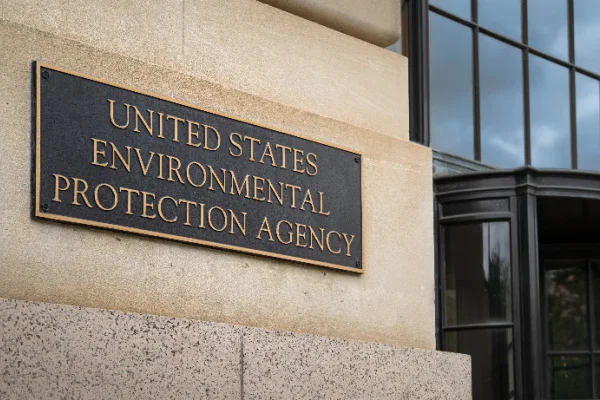 The US Environmental Protection Agency (EPA) enforces various regulations and programs to minimize environmental impact. Some common responses to airport-related issues include regulating omissions, noise pollution management, water quality protection, and waste management.
The US Environmental Protection Agency (EPA) enforces various regulations and programs to minimize environmental impact. Some common responses to airport-related issues include regulating omissions, noise pollution management, water quality protection, and waste management.
The EPA helps airports by making rules to reduce pollution from planes and vehicles. The agency also works on reducing airplane noise and protecting water quality. The Environmental Protection Agency encourages airports to recycle, dispose of waste properly, and prevent pollution. Overall, it collaborates with airports to be more sustainable and environmentally friendly.
Zoning Laws and Regulations Regarding How Close a Home Can Be to Airports
Zoning laws and regulations are essential in determining how towns and cities develop. They impact where houses can be built, businesses can operate, and industries can grow. A critical aspect of zoning is the distance between residential areas and airports. This is important for safety, noise control, and residents' overall quality of life.
In the United States, there's no one-size-fits-all answer. Each city or town sets its rules. However, federal guidelines and airport safety zones influence these decisions. Safety zones are areas where specific land uses are restricted to reduce risks to people and property.
About the Role of the Federal Aviation Administration
The proximity of residential areas to airports in the US is governed by zoning regulations set by local governments and the Federal Aviation Administration. The FAA recommends various land-use compatibility guidelines, including noise level restrictions, building height limitations, and zoning designations. These were designed to minimize the impact of airport operations on nearby residential areas.
Residential areas can be closer to smaller general airports than major commercial airports due to differences in aircraft size, frequency of flights, and noise levels.
Before making a real estate investment near an airport, we recommend checking with local authorities and reviewing specific zoning regulations in the area of interest! Investors must understand the restrictions and requirements related to residential development near airports!
How Is Traffic Near an Airport?
 Again, traffic next to airports can be a double-edged sword. Theoretically, living near an airport should eliminate excessive traffic delays. Many airports have well-organized incoming and departing lanes that minimize traffic jams and disruptions. Often, leaving for the office or an outing can become less tiring.
Again, traffic next to airports can be a double-edged sword. Theoretically, living near an airport should eliminate excessive traffic delays. Many airports have well-organized incoming and departing lanes that minimize traffic jams and disruptions. Often, leaving for the office or an outing can become less tiring.
In addition, traffic can be more relaxed during off-peak hours, such as late nights and very(!) early mornings on weekdays, or in smaller airports with less passenger turnover. So, living near a small airport has its benefits.
Reality Often Contradicts Theory.
Practice underlines that traffic near major US airports tends to be busy. We're looking at peak travel times such as early mornings, weekends, holiday seasons, and special events. What are the primary factors contributing to heavy traffic?
- The most renowned airports serve thousands of travelers daily. This results in considerable vehicular traffic from passengers, airport staff, and services like taxis and shuttles.
- Secondly, the roads leading to and from airports and those within the airport complex (such as the routes to different terminals or parking areas) can be congested, especially if there are any construction activities.
- Thirdly, the increase in ridesharing and traditional taxi services contributes to the congestion around airport areas. Pickup and drop-off zones can become exceptionally crowded.
- Fourth, searching for parking and active loading and unloading at the curbside can slow down traffic around terminal areas.
It's always a good idea to check the traffic reports and the airport's own advisories regarding construction or any known delays when planning a trip to or from an airport!
Property Values Near Airports Have Been Steadily Climbing Recently.
Because of rising investor demand and buyer convenience, the vicinity of an airport may increase the value of nearby properties in the United States. However, noise and other adverse factors may hurt property values near airports.
The value of a property may increase due to its proximity to an airport, particularly in expanding regional economies. Airports may attract real estate investors, increasing demand and eventually leading to higher prices. A wise long-term financial move could be to purchase property near an airport. Investors in growing economies can benefit from rental income (mainly if they target frequent travelers) and long-term investment growth. Furthermore, these assets have excellent resale value. All in all, real estate investments near an airport can be a sound choice.
Some sellers value convenience over peace and quiet, pushing prices up. We must warn you, though. Inflating property values near airports beyond reason can be a double-edged sword! Many homebuyers and renters still wouldn't touch these spots with a ten-foot pole because of the noise, air traffic, and sleep patterns disorder. Public health concerns will keep prices from skyrocketing.
Is Investing in a Property Near an Airport a Good Idea?
Considering the outstanding perks, you have an extraordinary opportunity to invest in Airbnb renting. You can buy an affordable place close to the airport for constant or frequent travelers who need to be nearby. This can be a tremendous chance for anyone with an enterprising spirit and some ingenuity!
Worth the Cost? High Property Prices vs. Health Problems
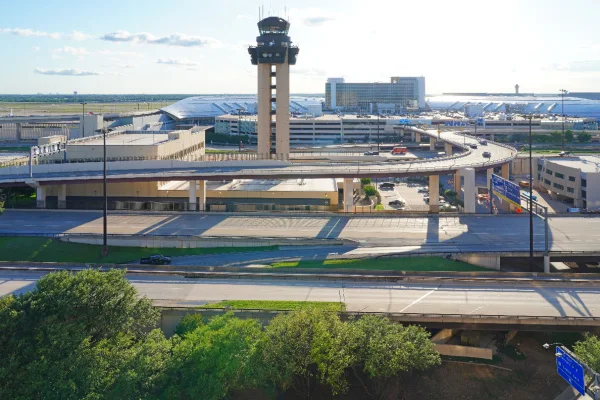 We established previously that the convenience of living near an airport can boost home prices. One such example is Southlake, Texas, one of the wealthiest communities in the nation. It has a high concentration of professional athletes, high-ranking corporate executives, and media personalities.
We established previously that the convenience of living near an airport can boost home prices. One such example is Southlake, Texas, one of the wealthiest communities in the nation. It has a high concentration of professional athletes, high-ranking corporate executives, and media personalities.
Average prices for homes here near the Dallas/Fort Worth International Airport runway go for about $1,390,000 (in February 2024). The presence of DFW International Airport and substantial air traffic have contributed to Southlake's success by providing convenient access to national and international travel, facilitating trade and commerce, and supporting the area's overall growth. With experienced agents in Southlake TX, you have every chance to benefit from a deal despite a competitive real estate market.
On a different note, let's examine emissions and public health issues with a concrete example in Los Angeles County (boasting approximately 930 freeway miles). Scientists consider Los Angeles International Airport (LAX) one of the primary sources of particulate pollution in Los Angeles. Producing enormous amounts of hazardous emissions compared to automobiles, airplanes are a much less efficient means of transportation on a per-capita basis.
These particles can be embedded in the lungs and enter the bloodstream. They will likely induce lung problems and different types of pulmonary diseases. Living near LAX (and other airports) could cause health issues, resulting in the depreciation of home prices. We strongly recommend that those with respiratory problems stay away from airports!
Conclusion
"I'm just sittin' out here watching airplanes
Take off and fly
Tryna figure out which one you might be on
And why you don't love me anymore."
Gary Allan perfectly captured the essence of "Watching Airplanes" and the sense of romanticism living near an airport can bring. Suppose the idea fascinates you, too, but you have certain reservations. Start small, and try living near a small airport to adapt to less air traffic. By all means, you can rent an affordable place to test the unique lifestyle.
Dwelling in a home near heavy air traffic should be a personal choice. The perks are indeed incredible. Living near an airport gives you access to enhanced connectivity, greater freedom, countless well-paying jobs, and never-before-considered career options. Also, the more affordable property prices should be enticing. Such assets can make for the ideal real estate investment in the long run targeted to one of the most profitable real estate niches: travelers.
However, the pitfalls give the perks a run for their money. Noise, air pollution, and emerging health issues are the most off-putting aspects of living near the runway. Traffic jams, unpleasant odors, and the occasionally high cost of living are also in the cards.
Ultimately, for me, the disadvantages outweigh the pros. Being an established individual in his early 40s, I prefer a quiet and peaceful environment to a turbulent one. Additionally, I must consider the health issues that such a life entails. Still, if I were in my 20s, I would give it a go. Dwelling near an airport is like living with a constant buzz - literally and metaphorically. I would thrive in a lively environment, thinking it's an adventure waiting to happen. After all, it's about finding the perfect runway to land one's dream home, right?
What are the pros and cons of living near an airport? Let us know in the comment section below. Also, remember to share the article on your social media accounts if you liked what you read!





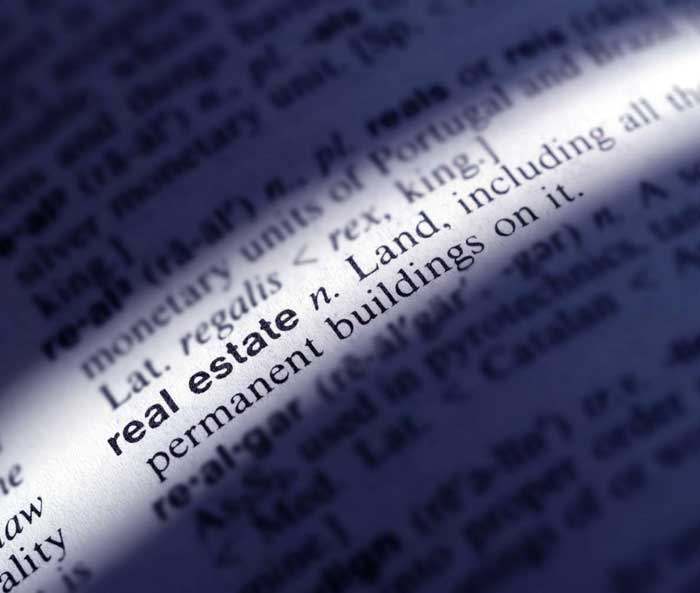












Living near an airport is not advisable.
Feb 25, 2020 20:41:40